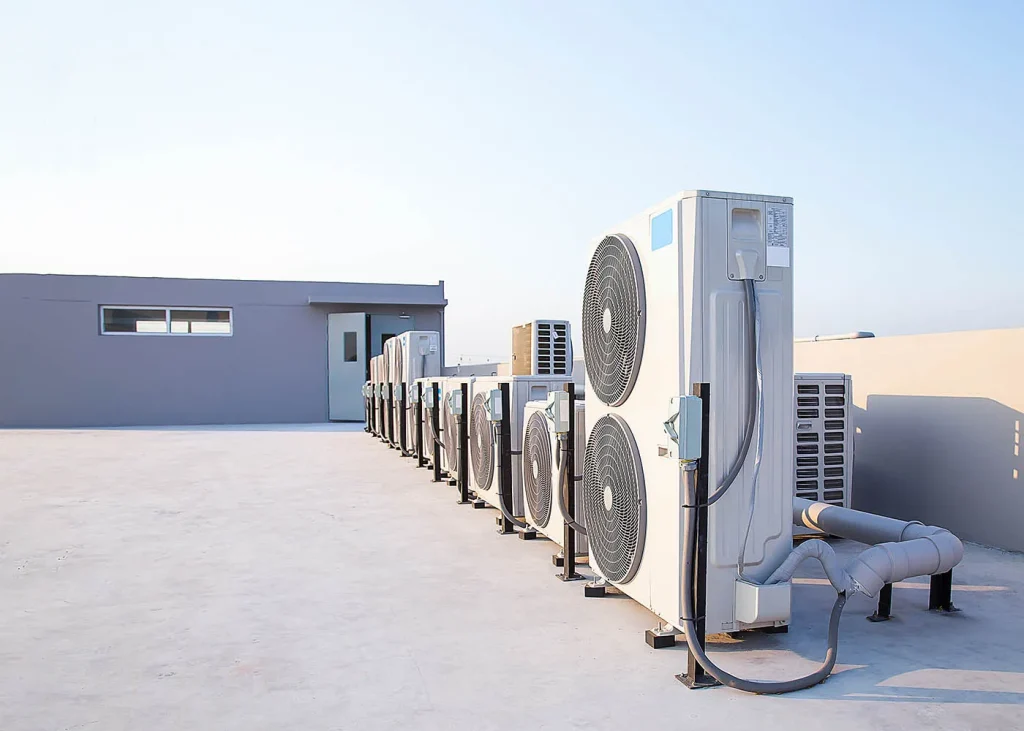Maintaining optimal efficiency in commercial air conditioning systems is essential for reducing energy consumption, lowering operating costs, and ensuring a comfortable environment for occupants. Here are some effective steps to improve the efficiency of your Commercial Air Conditioning.
1. Regular Maintenance
Routine maintenance is the cornerstone of efficient air conditioning. Schedule regular inspections to clean or replace filters, check refrigerant levels, and inspect ductwork for leaks. A well-maintained system operates more efficiently, reducing energy consumption and prolonging the lifespan of the equipment.
2. Upgrade to Energy-Efficient Systems
Consider upgrading older Commercial Air Conditioning units to more energy-efficient models. Modern systems often come with higher SEER (Seasonal Energy Efficiency Ratio) ratings, which means they use less energy to achieve the same cooling output. Investing in energy-efficient systems can lead to significant long-term savings.
3. Optimize Thermostat Settings
Proper thermostat settings can greatly impact energy efficiency. Programmable thermostats allow you to set temperature schedules that align with your business hours. For example, raising the temperature slightly during off-hours can save energy without sacrificing comfort when the building is occupied.

4. Implement Zoning Systems
Zoning allows you to divide your commercial space into different areas, each with its own temperature control. By cooling only the areas that are in use, you can avoid wasting energy on unoccupied spaces. This targeted approach improves overall efficiency and comfort.
5. Insulate Ductwork and Seal Leaks
Leaky or poorly insulated ductwork can cause significant energy loss. Ensure that all ducts are properly sealed and insulated to prevent cool air from escaping before it reaches its intended destination. This reduces the load on your air conditioning system, allowing it to operate more efficiently.
6. Utilize Energy Management Systems
Advanced energy management systems (EMS) provide real-time monitoring and control of your air conditioning system. These systems can automatically adjust settings based on occupancy, weather conditions, and energy usage patterns, optimizing efficiency and reducing waste.
7. Regularly Clean Coils
Dirty coils can reduce the efficiency of your air conditioning system by restricting airflow and forcing the system to work harder. Regularly clean the evaporator and condenser coils to maintain optimal performance.
